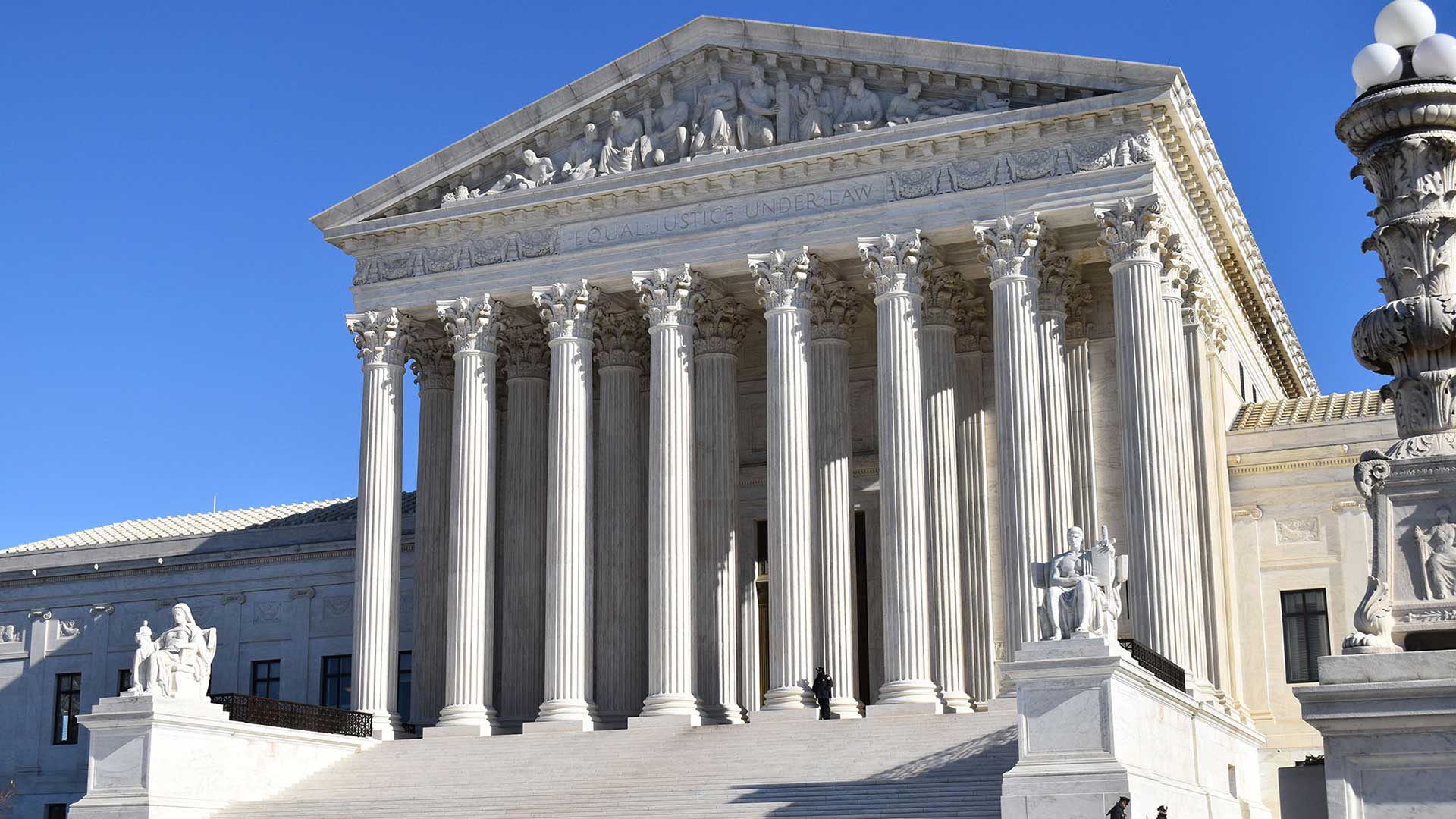 U.S. Supreme Court
U.S. Supreme Court
WASHINGTON – The Supreme Court said Monday that the Trump administration can enforce its proposed new “public charge” rule that will require immigrants show they will not need public assistance before they can gain admission to the U.S.
The court’s 5-4 order lifts lower court injunctions that had blocked the rule, and lets it take effect while court challenges play out.
Monday’s ruling was the latest turn in a case that has seen multiple federal courts impose local and national injunctions on the rule since it was unveiled in August by the U.S Citizenship and Immigration Services.
The White House issued a statement calling the latest ruling as “a massive win for American taxpayers, American workers, and the American Constitution,” while supporters like Rep. Paul Gosar, R-Prescott, called it a “is a victory for President Trump and every American.”
“Taxpayer-funded public assistance should not be an incentive to immigrate to the U.S and we should not be issuing green cards to immigrants who would rely on government welfare,” Gosar said in a statement.
But critics like Rep. Raul Grijalva, D-Tucson, said the “racist” public charge policy will merely punish immigrants for “utilizing benefits that they are legally entitled to.”
“President Trump has repeatedly expressed his disdain for immigrants from developing countries, and this rule is the manifestation of his racist attitude,” Grijalva said in a statement. “Instead of attacking immigrants who are good for our economy and good for our country, the Trump administration should take a good look at the real culprits within their own ranks overly reliant on taxpayer dollars.”
There has always been a public charge requirement for immigrants seeking visas, green cards and citizenship, but critics say it has not been well-defined. USCIS said the rule it unveiled in August was designed to ensure that immigrants entering the United States are “self-sufficient and rely on their own capabilities and the resources of family members, sponsors, and private organizations rather than on public resources.”
The Department of Homeland Security modified the definition of “public charge” to include “an individual who receives one or more designated public benefits for more than 12 months, in the aggregate, within any 36-month period.”
Carlos Guevara, a senior policy adviser at UnidosUS, a Hispanic civil rights and advocacy organization, called the rule “a frontal attack on the foundation of our legal immigration system.”
“It now puts the health of millions of American children at risk by discouraging their participation in safety net programs they are legally entitled to receive,” he said in a prepared statement.
Tom Jawetz, the Center for American Progress’ vice president of immigration policy, said in a release that the Supreme Court’s decision “takes a blowtorch to our already insufficient legal immigration channels and makes the immigration system even more cruel and dysfunctional.”
But Mike Krikorian, executive director of the Center for Immigration Studies, called criticisms of the rule “absurd” and “dishonest.” He said public charge is a “19th-century term” and the new regulations are just spelling it out in more detail and specifying how it should be applied.
“The main effect of this regulation will be to slightly increase the percentage of new immigrants who are able to pay their own bills,” Kirkorian said, adding that the new regulations will help make sure the future of immigration will be able to continue smoothly.
Arizona Democratic Party spokesperson Matt Grodsky disagreed, saying Arizonans and Americans “deserve better than this.”
“Immigration makes our country stronger, and it’s wrong and cruel for the Trump administration to punish working families who are fighting to get ahead,” Grodsky said in a statement.
Supreme Court justices Ruth Bader Ginsburg, Stephen Breyer, Sonia Sotomayor and Elena Kagan voted against lifting the injunction on the public charge rule.
But Justice Neil Gorsuch, who was joined by Justice Clarence Thomas in a concurring opinion, said the court “rightly” granted the stay that stopped a policy DHS studied for 10 months and took 266,000 comments on before issuing the final rule. The real problem, Gorsuch wrote, is the “increasingly common practice of trial courts ordering relief that transcends the cases before them.”
If lower courts are not reined in, he wrote, it will be impossible for the government to enact any new policy when opponents can go to court and “a single loss and the policy goes on ice – possibly for good, or just a possibly for some indeterminate period of time before another court jumps in to grant a stay.”
Cronkite News reporter MacKinley Lutes-Adlhoch contributed to this report.
For more stories from Cronkite News, visit cronkitenews.azpbs.org.

By submitting your comments, you hereby give AZPM the right to post your comments and potentially use them in any other form of media operated by this institution.